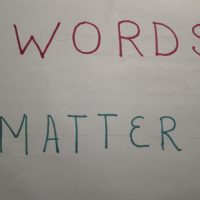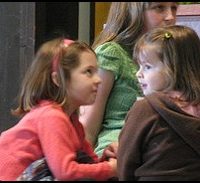Thomas Long writes: ‘Take the issue of inclusive language. Why should I be bothered with inclusive language in worship? Some people say that you should use inclusive language because otherwise, feelings will get hurt. That is true but not very persuasive. Others say that you must use inclusive language because kids in school are using […]
Read full textInclusive language
Inclusive language, definition & guidelines — Tasmania
‘Inclusive language is language that is free from words, phrases or tones that reflect prejudiced, stereotyped or discriminatory views of particular people or groups. It is also language that doesn’t deliberately or inadvertently exclude people from being seen as part of a group. Inclusive language is sometimes called non-discriminatory language.’ From ‘Guidelines for Inclusive Language‘ […]
Read full textTaking the next step in Inclusive Language — Pamela Payne Allen, USA
Thirty after Allen wrote for Christian Century, with the majority of our churches continuing to use male-dominated language in worship, a fresh read of Allen’s article can raise the persistent and critical ‘cry in the wilderness’ as she provides important concerns and suggestions for worship leaders committed to inclusive language in worship. Allen’s article opens with […]
Read full textGod is not a she…not a he — Brian Wren
God is not a she, God is not a he, God is not an it or a maybe. God is a moving, loving, doing, knowing, growing mystery. From The Song of Three Children, libretto copyright © Brian Wren, 1986, copied from the article “Taking the Next Step in Inclusive Language” by Pamela Payne Allen which […]
Read full text



